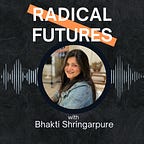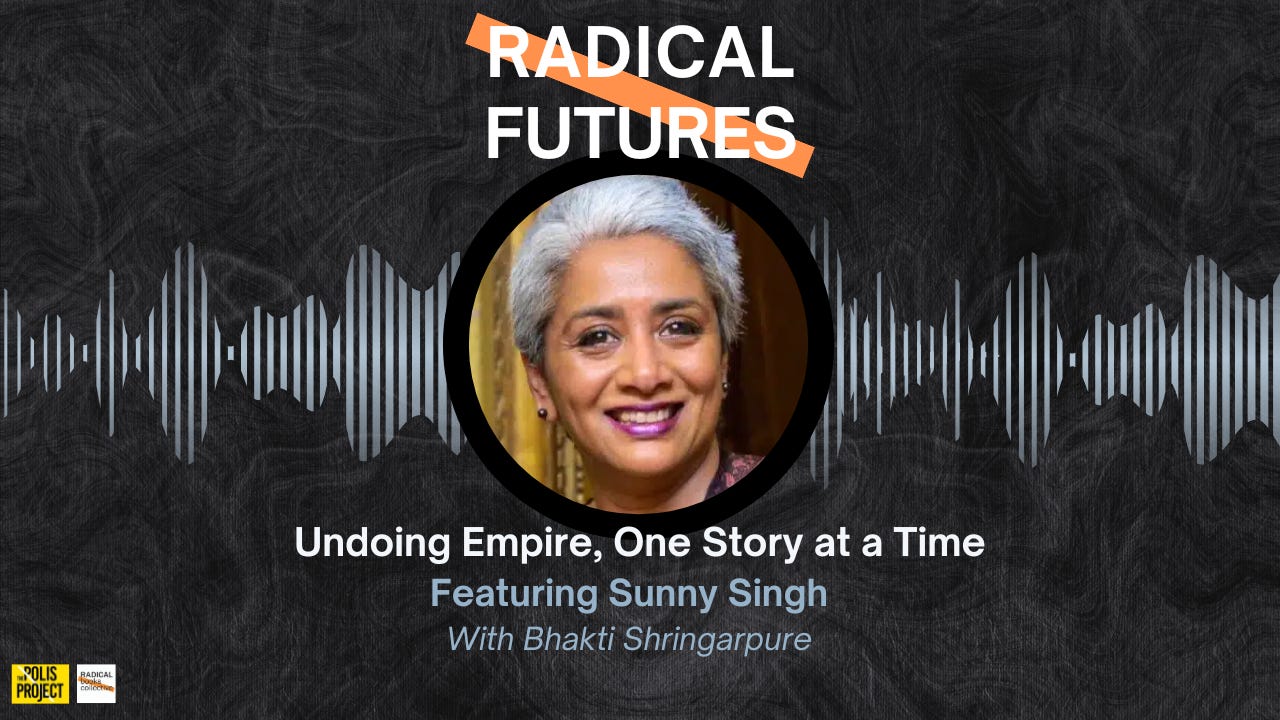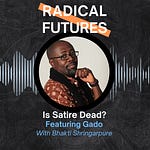Writer, scholar, and educator Sunny Singh explains that everything she does “centers around finding ways to undo empire.” The world we have inherited is “an ongoing colonial project” and thus “the wars, the genocides that we’re watching now, are still the same colonial wars.”
Imperial powers have poured vast resources into usurping power through shaping narratives. “Before a single shot is fired, before a single grain of rice is confiscated as it happened in the Bengal famine; before a single package of aid is blocked, as is happening now in Gaza, there is a war of stories.”
All of Singh’s work emphasizes the importance of writing back to these narratives and thus refusing those stories. Her recent story collection, Refuge: Stories of War (and Love), attempts to decenter the traditional war narrative by focusing on women’s perspectives. The stories are sparse, moving reflections on violence and suffering.
At a stylistic level, the new collection might seem like a departure from Singh’s previous object of study: Bollywood cinema. But Singh argues that her writing on Bollywood comes from this same place of anti-colonial politics.
Her 2023 book A Bollywood State of Mind: A Journey into the World’s Biggest Cinema is a memoir, but it is also an homage to the world’s oldest film industry. Singh offers an intimate glimpse into her own peripatetic childhood and youth, punctuated by songs from Hindi movies, family conversations about films, as well as happy memories of going to the cinema. As an adult, Singh was shocked to see the prejudice— even disdain— around scholarly writing about Bollywood. The scholars would insist on a very academic, objective, and neutral view, and Singh says that this “kind of demand is never made of a Hollywood scholar, or a French or Italian cinema scholar.”
Singh wanted to write about Bollywood through an “emotional core” while paying attention to how “stories work” and “how they impact people and how they impact culture.” She believes that Bollywood historically had an anti-colonial impulse, even though some of today’s overtly nationalist cinema is disconcerting and needs to be critiqued. Unfortunately, “empire is built into the [Indian] nation state’s DNA,” Singh says.
Singh’s commitment to amplifying stories and storytellers that are marginalized in the mainstream is also evident in her founding of the Jhalak prize, an annual literary prize awarded to BAME writers (Black, Asian, Minority Ethnic) who are residents of Britain. Fed up with all-white juries, all-white longlists, and the false refrain about the lack of Black or brown writers, Singh decided to found a prize dedicated to her grandmother, whose words were an inspiration to her as a girl: “If you see something wrong, fix it.”
The prize is now ten years old, but it has been an uphill battle to get mainstream media to even cover it. They also had a member of parliament who even accused them of racism. But Singh laughs it off and soldiers on. “The issue is not individuals, it’s the structure. I’m interested in knocking down the structure.”
Singh says that almost 40% of children in the UK are now from a minority ethnic background, and publishing books by writers of color is urgent. “Every time that child reads a book that features someone like them, that features their family, that features their story, that’s one kid who’s had a little chip out of that imperial propaganda worldview knocked out. That’s a child who’s had one tiny taste of freedom.”
Further reading: https://www.sunnysingh.net/
Hosted by Bhakti Shringarpure.
Radical Futures is produced by Warscapes
Title Music: “Cottonstorm” by Bayern Boom Beat
Subscribe | Follow www.radicalbookscollective.com












